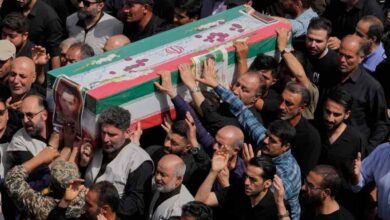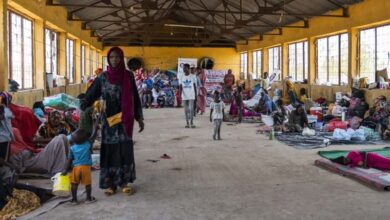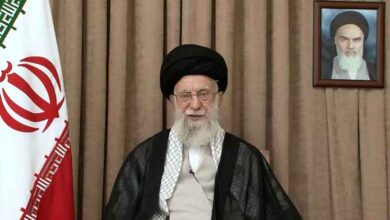BEIRUT: When Israel bombed buildings outside the southern Lebanese city of Sidon, Mohamed Arkadan and his team rushed to an emergency unlike anything they had ever seen.
About a dozen apartments had collapsed onto the hillside they once overlooked, burying more than 100 people. Even after 17 years with the civil defense forces of one of the world’s most war-torn nations, Arkadan was shocked at the destruction. By Monday afternoon — about 24 hours after the bombing — his team had pulled more than 40 bodies, including children’s, from the rubble, along with 60 survivors.
The children’s bodies broke his heart, said Arkadan, 38, but his team of over 30 first responders’ inability to help further pained him more. Firetrucks and ambulances haven’t been replaced in years. Rescue tools and equipment are in short supply. His team has to buy their uniforms out of pocket.
An economic crisis that began in 2019 and a massive 2020 port explosion have left Lebanon struggling to provide basic services such as electricity and medical care. Political divisions have left the country of 6 million without a president or functioning government for more than two years, deepening a national sense of abandonment reaching down to the people the country depends on in emergencies.
Israel’s intensified air campaign against Hezbollah has upended the country. Over 1,000 people have been killed in Israeli strikes since Sept. 17, nearly a quarter of them women and children, according to the Health Ministry. Hundreds of thousands of people have fled their homes, sleeping on beaches and streets.
The World Health Organization said over 30 primary health care centers around Lebanon’s affected areas have been closed.
On Tuesday, Israel said it began a limited ground operation against Hezbollah and warned people to evacuate several southern communities, promising further escalation.
Lebanon is “grappling with multiple crises, which have overwhelmed the country’s capacity to cope,” said Imran Riza, the U.N.’s humanitarian coordinator for Lebanon, who said the U.N. had allocated $24 million in emergency funding for people affected by the fighting.
Exhausted medical staff are struggling to cope with the daily influx of new patients. Under government emergency plans, hospitals and medical workers have halted non-urgent operations.







